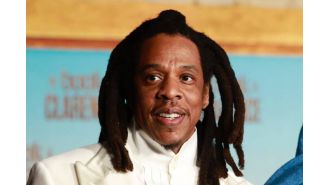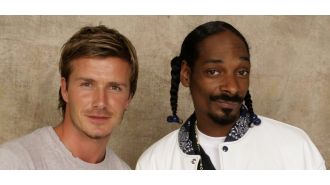Geert Wilders, also known as the 'Dutch Trump', is a politician who is forming the new government in the Netherlands with a pro-Putin stance.
A populist leader sought to prohibit mosques and the Quran due to their association with Islam.

The political landscape in the Netherlands is about to undergo a major shift. After months of negotiations, four parties have finally agreed to form a coalition government. This new government is being hailed as the most right-wing in the country's history.
The driving force behind this shift is Geert Wilders, leader of the radical right Party for Freedom. In the last general election, his party gained a quarter of the vote, more than doubling their previous numbers. Wilders campaigned on a platform promising to restrict immigration, ban mosques and the Quran, and halt asylum seekers altogether.
After years of being shut out of power, Wilders has finally succeeded in convincing other parties to work with him. However, despite his success, he will not be the country's Prime Minister. Instead, he will continue to be a disruptive force from outside the government, much like President Trump's use of Twitter.
In the midst of all this political upheaval, Metro has launched a new politics newsletter, "Alright, Gov?", to keep readers up to date on the latest developments in Westminster and beyond. Sign up now for exclusive interviews, breaking news, and easy-to-understand explanations of how current events will affect you.
Even without holding an official government position, Wilders may find himself more powerful than ever. He has long admired leaders like Russia's Vladimir Putin and Hungary's Viktor Orban, and his rise to power may give him a similar level of influence.
But who is Geert Wilders? At 6'5", he is a formidable figure in Dutch politics. He first entered parliament in 1998, but left his party in 2004 over disagreements about Turkey joining the European Union. He then founded his own party, the PVV, with a focus on opposing immigration. Unlike other right-wing parties, Wilders does not oppose LGBTQ+ rights, but instead frames Muslim immigration as a threat to Dutch liberal values.
Despite this, Wilders himself holds illiberal views. He has called Islam a "violent ideology" and has been convicted of insulting Moroccans. He has also expressed admiration for authoritarians like Putin and Orban, praising the latter's election victory and calling the former an ally in the fight against terrorism and immigration.
But what does Wilders' rise mean for Ukraine? While the PVV has condemned Russian aggression, Wilders has opposed sanctions on Russia and has shown little support for Ukraine. And with the possibility of a far-right surge in the upcoming European Parliament elections, support for Ukraine's military may waver.
So why has the Netherlands, known for its liberal values, ended up with such a right-wing government? It all started in October 2019, when the country was rocked by a series of protests. Extinction Rebellion, a climate activist group, blocked one of Amsterdam's main roads for a day. This was followed by farmers protesting against environmental regulations and construction workers protesting against nitrogen emissions rules. These protests highlighted the growing divisions within Dutch society, and Wilders was able to capitalize on this discontent to gain support for his party.
As the new government takes office, it remains to be seen how Wilders' influence will shape the country's policies and relationships with other nations. But one thing is for sure, the Netherlands will never be the same again.
The Netherlands is about to experience a drastic shift in their government as they prepare for their most right-wing administration ever. It has been six months since the general election, and four parties have finally come to an agreement to govern together. This coalition includes Geert Wilders' radical right Party for Freedom, which gained a significant percentage of votes in the November election. Wilders, who stands at an impressive 6'5", has promised to implement strict measures such as banning mosques and the Quran, limiting immigration, and halting asylum seekers.
It was a long and arduous journey for Wilders to reach this point. Despite being unable to secure a prime minister position, he is still celebrating this victory. At the age of 60, Wilders wrote on social media that "the sun will shine again in the Netherlands." Even though he will not hold an official position in the government, he plans to continue his disruptive behavior and even joked about "tweeting a little bit in the line of Trump."
For those who are unfamiliar with Dutch politics, Metro has launched a new newsletter called "Alright, Gov?" to provide regular updates on Westminster and beyond. It includes exclusive interviews with prominent figures and easy-to-understand breakdowns of current events and how they may affect citizens.
Despite not being the prime minister, Wilders may still hold a significant amount of power from the sidelines. His admiration for authoritarian leaders like Vladimir Putin and Viktor Orban may come into play as he influences policies and decisions made by the new government. This raises questions about his views on Russia and Ukraine, especially given the recent events where Russian forces have invaded Ukraine and shot down a Malaysian passenger plane.
Wilders has been known as one of the most pro-Putin politicians in the Netherlands, even going as far as calling him an ally in the fight against terrorism and mass immigration. However, as his party joins the coalition, his stance on Russia has slightly moderated. He now recognizes Russia as the aggressor and opposes their actions. However, he still opposes providing military aid to Ukraine and implementing sanctions on Russia. This may cause some concern for the future of European support for Ukraine's military.
The rise of Wilders and his party has brought about a right-wing government that is unprecedented in the Netherlands. This may come as a surprise for a country that is known for its liberal values, including the legalization of cannabis, same-sex marriage, and assisted suicide. However, the country has been experiencing societal divisions, which were evident during the protests in October 2019. These divisions have ultimately led to the formation of this right-wing coalition.
So, as the Netherlands prepares for this new government, one can only wonder what changes will be in store for the country and its citizens. It is a significant shift that will have an impact not only on the nation but also on the rest of Europe. Will Wilders continue to hold influence from the sidelines, and what will this mean for his views on Russia and Ukraine? Only time will tell as the sun rises on this new era in Dutch politics.










